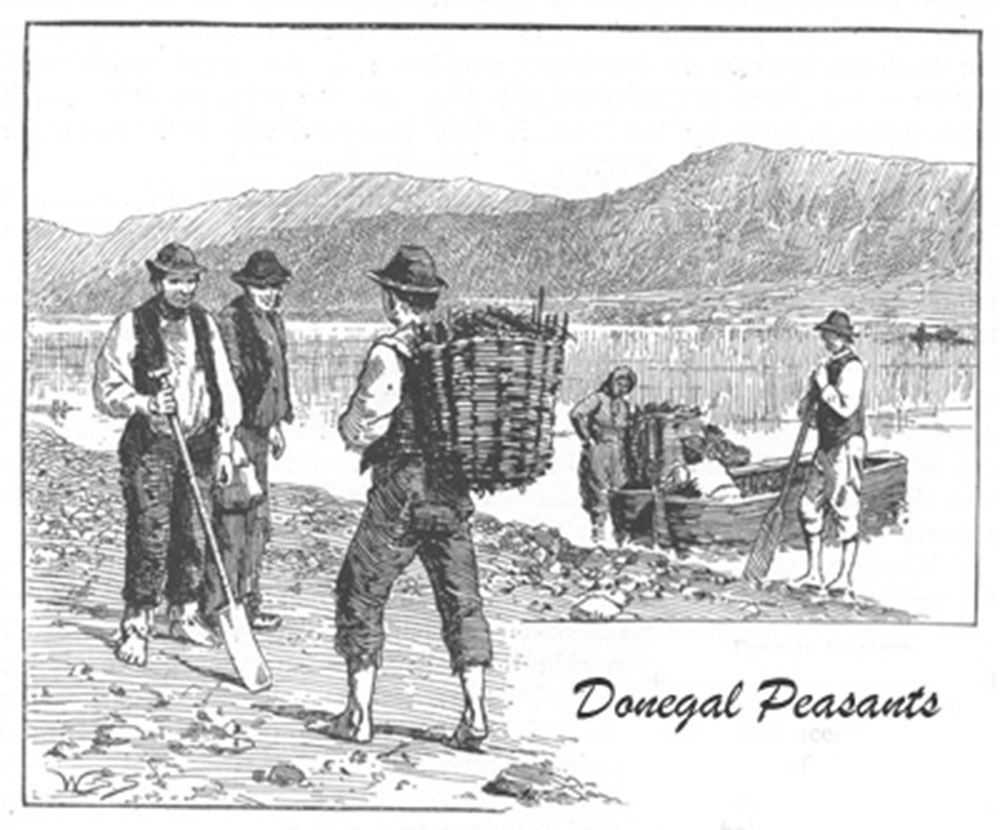Donegal Peasants - Irish Pictures (1888)
From Irish Pictures Drawn with Pen and Pencil (1888) by Richard Lovett
Chapter VIII: The Donegal Higlands … continued
« Previous Page | Start of Chapter | Book Contents | Next Page »
This is a fitting place to refer to the Donegal peasantry. We are able to give an engraving of a group. They are a fine sturdy race, well-made and seemingly well-fed. There are not the evident signs of mental quickness so readily seen in some districts of Ireland, and the hints that life is a hard struggle with poverty are abundant. But they are self-reliant and free from all tendency to cringe. They are not forward to make advances, but they respond readily to the kindly look or the civil word. Until recently, perhaps more than in many parts, they were strongly swayed by their landlords, and on this account possibly the Home Rule feeling runs very strongly among them. But they do not obtrude this side of their life upon the passing stranger. The author's experience of them exactly coincides with that of the writer of An Unknown Country: 'We saw in returning family groups sitting by the roadside on the moor or chatting outside their cabin doors. They just glanced up as we drove past, nothing more. There was nothing of the wild pursuit of tourists by child-beggars—and grown-up beggars too—and nothing of the fierce scowl at all supposed well-to-do people, which I had been told we should find in this land ripe for revolution. And though they were as poor as poor could be —a poverty which our English poor could hardly realize—they all looked respectable; a word which implies more than at first appears, since a man who is worthy of respect must first respect himself. They would have been a problem to many English who pass rash and harsh judgments upon Ireland. . . . Nothing strikes one more in Donegal, or indeed, throughout Ireland, than the exceeding wholesomeness of the children. Ragged they may be, thin, and half-starved, but they are seldom either crippled or diseased. They can run like hares, and spring like wild-cats; they look up at you fearlessly with their big, bright, Irish eyes, and grin at you with their dazzling teeth, till you laugh in spite of yourself, and they laugh back again, as if, in spite of all this misery, life were a capital joke."
« Previous Page | Start of Chapter | Book Contents | Next Page »

